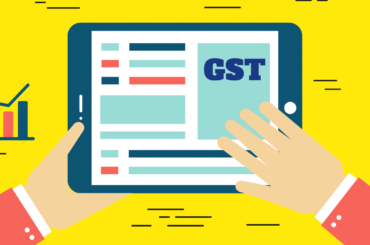Freelancing implies working independently without long-term commitments. You get paid per project, task, or hourly, with flexibility to choose gigs that suit your schedule. With the rise of technology, freelancing is booming in India. This guide will help you understand freelancing and how to start your journey.
Related Read: How to Start a Business in 2025?
Table of Contents
What is Freelancing?
Freelancing is a form of self-employment where individuals can work independently for clients on a per-project, per-task basis or a contractual basis without long-term commitments.
Freelancers typically work independently, offering expertise in various domains such as writing, design, IT, marketing, and consulting. They are responsible for managing their own business operations and can choose to work remotely or on-site, based on project requirements.
How Does Freelancing Work? A Step-by-Step Guide
STEP 1: Finding Clients
Find Clients through Online Platforms
Utilize platforms like Upwork, Fiverr, and Freelancer to showcase your skills, bid on projects, and connect with potential clients.
Find Clients through Network
Attend industry events, connect with professionals on social media, and join relevant groups to expand your network and discover opportunities.
Proactively Reach Out Directly
Directly contact potential clients through email or LinkedIn to introduce yourself and offer your services.
STEP 2: Define Project Scope
Create a Clear Scope
Work with the client to outline the project’s scope such as specific deliverables, timeline, and expectations. This ensures both parties are on the same page.
STEP 3: Negotiate Terms
Discuss Payment Structure
Determine the most suitable payment method (hourly, per project, or milestone-based) and agree on terms such as advance payment, installment payment, deferred payment and final payments.
Establish a Contract
Create a formal contract that outlines the scope of work, payment terms, deadlines, and legal protections to safeguard both parties’ interests.
STEP 4: Deliver Exceptional Work
Manage Tasks Effectively
Employ project management tools to stay organized, track progress, and meet deadlines.
Maintain Open Communication
Regularly communicate with clients to address any questions, provide updates, and ensure alignment on project goals.
STEP 5: Get Paid Promptly
Send Professional Invoices
Issue detailed tax invoices promptly upon completing work, clearly stating the services provided and payment terms.
Choose Secure Payment Methods
Use reliable payment options like bank transfers, UPI, PayPal, or online payment gateways to ensure timely and secure transactions.
Freelancing Statistics and Pricing in India (2025)
Here are key freelancing stats and pricing insights for Indian freelancers in 2025:
1. Most common services:
Around 47% of Indian freelancers provide knowledge-based services like content writing, web development, digital marketing, and graphic design.
2. Top-paying freelance roles:
In India, software developers, digital marketers, and legal consultants are among the highest-paid freelancers, earning anywhere between ₹500 to ₹5,000 per hour, depending on expertise.
3. Average hourly rate:
The average Indian freelancer charges around ₹1,000–₹1,500 per hour, though rates vary by industry and experience.
4. Working hours:
Many Indian freelancers spend between 15 to 25 hours per week on freelance projects, often balancing multiple clients.
5. Why Indians choose freelancing:
A majority of Indian freelancers cite flexibility, better income potential, and freedom from 9–5 jobs as key reasons for choosing freelancing.
Freelancing vs. Full-Time Jobs: What Sets Them Apart?
Aspect |
Freelancing |
Full-Time Job |
| Flexibility | You have the freedom to work from anywhere at any time, depending on your preferences or circumstances. You also get to pick your clients and projects. | You perform specific duties during set working hours and typically have fixed responsibilities. |
| Stability | Freelance work can be unpredictable, making it harder to plan for the future. | Full-time jobs offer stable, predictable income and work schedules, making financial planning easier. |
| Benefits | Freelancers usually don’t receive employer-provided benefits like paid leave, retirement plans, or health insurance. | Full-time employees get benefits such as paid vacation, health insurance, and retirement contributions. |
| Motivation | You are your own boss, so self-motivation is essential to staying productive and meeting deadlines. | Motivation comes from meeting performance expectations and working toward promotions or raises. |
| Earnings | You control your earning potential by setting your own rates and choosing how many hours to work. | Earnings are typically fixed and based on your company’s salary structure. |
| Skill Set | Freelancers can specialize in one area or explore various fields to build a broader skill set. | Job roles are more defined, offering less flexibility to develop skills outside your job description. |
| Experience | You get the chance to work with multiple brands or clients, building a diverse portfolio and broad professional network. | You’re limited to working within one company, which may restrict exposure to different industries or projects. |
| Responsibilities | You manage all administrative tasks like invoicing, scheduling, and expense tracking on your own. | These tasks are usually handled by the company’s HR or administrative team. |
| Support | Freelancers often work remotely, which can feel isolating due to fewer collaboration and support opportunities. | Employees usually work in teams, allowing more social interaction and collaborative support from coworkers. |
Benefits of Freelancing
1. Flexibility in Time and Location
- Freelancing allows you to decide when and where you work.
- You can structure your day around your personal life, whether working from a coffee shop, co-working space, or home.
This flexibility often creates a healthier balance between work and personal commitments.
2. Choice of Clients and Projects
- As a freelancer, you control the projects you take on.
- You can pursue work that aligns with your expertise and passions, focusing on what excites you the most.
- Additionally, you can choose clients who match your working style and values, ensuring a more satisfying professional experience.
3. Exposure to Global Brands
- Freelancing breaks down geographical barriers, allowing you to work with clients worldwide.
- By collaborating with international brands, you can gain unique insights, broaden your horizons, and build a global portfolio that showcases your versatility.
4. Setting Rates for Work
- Freelancing empowers you to set your rates, giving you control over your financial potential.
- Your earnings are tied to your ability to manage your workload, allowing you to increase your income based on the volume and complexity of the projects you take on.
5. Skill Enhancement
- Each freelance project is a chance to refine your expertise.
- Working with different clients and on various tasks helps you stay sharp and expand your skill set.
- Over time, freelancing can turn you into a specialist in your chosen field, adding depth to your professional experience.
Top 9 High-Demand Freelance Categories in 2025
Freelancing gives you the freedom to work across different industries. Here are the 9 most in-demand categories in 2025, with job roles that match your interests and skill sets.
1. IT & Development
- Web Developer: Built and maintained websites for clients, including layout, scaling, and functionality.
- UX Designer: Designs user-friendly experiences through research and competitor analysis.
- Programmer: Write and manage code for various software development needs.
- ML Engineer: Create AI models that analyze data and make predictions. Requires Python, R, and a background in computer science.
- Data Analyst: Clean and analyze data using tools like SQL and Excel to support business decisions.
- AI Researcher: Designs algorithms and runs experiments to improve AI systems. Strong in math, statistics, and computer science.
2. Creative & Design
- Graphic Designer: Create logos, brand visuals, and marketing materials.
- Video Editor: Edit footage by combining graphics, effects, and audio into polished content.
- Website Designer: Choose CMS platforms, themes and update site elements like banners and graphics.
- Photographer: Shoot and edit images for events or business use.
- Videographer: Captures and edits professional video content for business or personal events.
3. Marketing & Sales
- Social Media Marketer: Manage accounts, create posts, and track engagement.
- Marketing Strategist: Develop ad campaigns and outreach programs.
- Customer Contact Manager: Set service targets, manage complaints, and monitor response times.
- Content Creator: Craft content for blogs, social media, and websites using text, images, or video.
- SEO Specialist: Optimized websites with keywords, backlinks, and analytics for better search rankings.
4. Writing & Translation
- Copywriter: Write persuasive copy for ads, websites, and emails.
- Content Writer: Create educational or informative content for blogs and digital platforms.
- Technical Writer: Write manuals, user guides, and reports in clear, accessible language.
- Editor: Review grammar, tone, accuracy, and alignment with client briefs.
- Translator/Interpreter: Translate written content accurately between languages for websites, manuals, and marketing.
5. Admin & Customer Support
- Customer Service Coordinator: Handled customer feedback, complaints, and surveys.
- Database Manager: Organizes and secures customer or business data.
- E-commerce Manager: Manage online inventory, marketing, and maintenance.
- Virtual Assistant: Support clients with scheduling, travel, and admin tasks remotely.
- Project Manager: Oversee deadlines, budgets, and team coordination to deliver projects efficiently.
6. Finance & Accounting
- Accountant: Helps with financial reporting, budgeting, and tax returns.
- Financial Advisor: Offer clients guidance on managing personal and business finances.
- Investor: Analyze company performance and advise on investments.
- Bookkeeper: Manage financial records, accounts, and transaction tracking.
7. Human Resources (HR)
- Payroll Manager: Process payroll and ensure accurate salary disbursement.
- Recruiter: Find and screen talent for multiple clients.
- General HR Expert: Help clients with employee policies, training, and development.
8. Legal & Compliance
- Lawyer: Provides legal counsel in areas like corporate, civil, or family law.
- Remote Secretary: Handle admin tasks like invoicing, scheduling, and filing documents.
- Paralegal: Assist in legal documentation, electronic filings, and compliance-related tasks.
9. Engineering & Architecture
- Architect: Work on structural designs, permit documents, and 3D planning.
- Interior Designer: Advise on layout and aesthetics using design tools for virtual previews.
- Remote Mechanical Engineer: Build machines, troubleshoot problems, and assist with product development.
- 3D Modeler: Creates realistic models for use in games, construction, and marketing.
Taxation for Freelancers
1. Freelancers and Income Tax
In India, freelancers are treated as self-employed individuals under the Income Tax Act. This means you are responsible for calculating and paying your taxes. Freelancers must report their income under the “Profits and Gains of Business or Profession” head and file their taxes accordingly.
2. Self-Employment Tax
Freelancers must pay income tax according to the GST rate for freelancers set by the government. In addition to income tax, they may also need to pay professional tax depending on their state of residence.
3. Tax Deductions
Freelancers can claim deductions for essential expenses. Common deductible expenses include office rent, internet bills, work-related travel costs, and equipment purchases. Keeping detailed records and receipts is crucial for accurately claiming these deductions.
4. Advance Tax
Freelancers must pay advance tax if their total tax liability exceeds ₹10,000 in a financial year. Advance tax is paid in four instalments throughout the year, helping to distribute your tax payments and avoid a large lump sum payment at year-end.
5. TDS and Form 16A
Freelancers may receive payments after Tax Deducted at Source (TDS) is deducted. Clients provide Form 16A, which shows the TDS amount. This form is necessary for reconciling your total tax liability when filing your income tax return.
What are the Most Common Freelance Career Fields?
Here’s the list of popular freelance career fields:
1. Writing and Editing Content
- Freelance writers and editors offer content creation, copywriting, and proofreading services to clients.
- These professionals work across industries, including marketing, publishing, and media, delivering engaging content for blogs, articles, websites, and more.
2. Graphic Design and Illustration
- Graphic designers and illustrators create visual content, from logos and branding materials to illustrations and digital artwork.
- They serve clients in advertising, web design, and product packaging, offering creative digital and print media solutions.
3. Web Development and Programming
- Freelance web developers and programmers specialise in building websites, apps, and software solutions.
- They work with clients to design, develop, and maintain digital platforms that meet specific business needs, often focusing on user experience and functionality.
Related Read: How to Become a Freelance Web Developer in 2025 – A Detailed Guide
4. Digital Marketing
- Freelancers in digital marketing help businesses grow their online presence through services such as SEO, social media management, email marketing, and paid advertising.
- Their expertise helps brands reach their target audience and drive engagement.
5. Consulting and Coaching
- Consultants and coaches offer expert advice and guidance in various fields, such as business strategy, finance, and personal development.
- They help clients solve complex problems, improve performance, and achieve their goals through tailored solutions.
6. Photography and Videography
- Freelance photographers and videographers capture and create visual content for events, marketing campaigns, and media productions.
- They often specialise in product photography, event coverage, and video production for businesses and individuals.
What are the Skills & Qualities Required for Freelancing?
Freelancing offers flexibility and independence but demands specific skills and traits to thrive in a competitive market. Whether you’re just starting or looking to enhance your freelancing career, possessing these qualities can make all the difference.
1. Communication Skills
- Clear and professional communication is key to building and maintaining client relationships.
- Whether it’s discussing project details or negotiating terms, effective communication helps avoid misunderstandings.
- For example, summarising project requirements in writing after a call can ensure everyone is on the same page.
2. Adaptability
- Freelancers must adapt to different industries, project types, and client expectations.
- Being open to learning new skills or adjusting your work style can make you more versatile and attractive to clients.
- For instance, staying updated on industry trends through online courses can give you an edge over competitors.
3. Problem-Solving Skills
- There are many unexpected challenges for freelancers, from technical issues to last-minute client changes.
- Being a good problem-solver means staying calm under pressure and finding quick, practical solutions.
- For example, having a backup plan, like an alternate internet source, can prevent delays in delivering work.
4. Self-Discipline
- Freelancers must be self-motivated to meet deadlines and maintain productivity.
- Without a boss to oversee your work, you need to set your schedule and stick to it.
- A daily task list can help you stay on track and complete projects on time.
5. Time Management
- Managing your time effectively is crucial when juggling multiple projects.
- Freelancers often work with different clients and deadlines, making it essential to prioritise tasks.
- Tools like Google Calendar can assist in organising your workday and ensuring no project is overlooked.
6. Financial Management
- Managing your finances is crucial as a freelancer since income can be irregular. You need to budget for personal and business expenses like software subscriptions or taxes.
- Using Excel sheets or expense tracking apps can help you track income expenses and prepare for tax season.
7. Networking
- Building a solid network is essential for finding new clients and growing your freelancing career.
- Attend industry events, join online forums, or participate in social media groups relevant to your field.
- These connections can lead to future collaborations and job opportunities.
How to Start Freelancing Job in India 2025? A Step-by-Step Guide
Here’s the step-by-step guide to start freelancing job in 2025
STEP 1: Assess your Skills and Market
- Begin by evaluating your skills and identifying the services you can offer.
- Research market demand in your chosen field to ensure there’s a need for your expertise.
STEP 2: Create a Compelling Portfolio
- Showcase your work with a well-organised portfolio.
- Highlight your best projects and provide examples demonstrating your skills and capabilities to potential clients.
STEP 3: Utilise Freelance Platforms
- Sign up on popular freelance websites like Upwork, Fiverr, or Freelancer.
- These platforms connect freelancers with clients looking for various services, making it easier to land your first gig.
STEP 4: Network and Leverage Social Media
- Use LinkedIn, Twitter, and other social media platforms to promote your services and connect with industry professionals.
- Networking can lead to job referrals and help you establish your freelancing career.
STEP 5: Start with Small Gigs and Projects
- Don’t hesitate to take on smaller projects initially.
- These gigs can help you gain experience, build your reputation, and gradually lead to more significant opportunities.
STEP 6: Reach Out to Your Network
- Let friends, family, and professional connections know you’re available for freelance work.
- Referrals from your network can be a great way to get started.
STEP 7: Pitch Your Services
- Approach potential clients directly with a well-crafted pitch.
- Highlight how your skills can solve their problems and add value to their business.
STEP 8: Stay Persistent and Patient
- Finding your first freelance job can take time, so remain persistent.
- Keep refining your approach, applying for opportunities, and staying active in your search until you land your first job.
How to Manage your Freelance Business?
1. Tax Obligations
- As a freelancer, you are responsible for your tax payments.
- It’s essential to track income, deduct expenses, and comply with tax regulations to avoid penalties.
2. Expense Tracking
- Keeping track of your business expenses, such as software subscriptions, equipment, and travel, helps you manage finances efficiently.
- Proper expense tracking also aids in tax deductions.
3. Continuous Learning
- Staying updated with industry trends and enhancing your skills is critical for long-term success.
- Continuous learning through courses, certifications, and industry events helps you stay competitive in the freelancing market.
Disadvantages of Freelancing
1. Uncertain Job Security
- Freelancing comes with inherent job instability.
- Work may come in waves, with periods of high demand followed by lulls.
- This irregularity can make it challenging to maintain a steady income, often necessitating a supplementary source of income like a regular job or savings to buffer against downtime.
2. Lack of Employer-Funded Benefits
- Freelancers do not receive the benefits that full-time employers provide- such as health insurance, retirement contributions, and paid leave.
- Self-employed individuals are responsible for securing and financing their own benefits, which can be a significant consideration.
3. Administrative Responsibilities
- Managing a freelance career involves more than just delivering services. Freelancers must handle administrative tasks such as invoicing, legal paperwork, and marketing.
- This requires knowledge of bookkeeping, tax regulations, and other operational details that an employer typically manages in a full-time role.
4. Isolation
- Freelancers often work alone and may feel lonely, especially when working remotely.
- Compared to traditional office environments, where daily interactions with colleagues are common, freelancers may miss out on social connections and developing team dynamics.
FAQs
1. What exactly does a freelancer do?
A freelancer works independently, offering services to multiple clients. Freelancers can be involved in various fields, such as writing, design, programming, and consulting, and they manage their schedules, rates, and workloads.
2. Which skill is best for freelancing?
The best skill for freelancing depends on market demand and your expertise. Popular freelance skills include writing, graphic design, web development, and digital marketing. It’s essential to choose a skill you are proficient in, which is in steady demand.
3. How do I start freelancing?
To start freelancing, first assess your skills and identify a niche. Create a portfolio to showcase your work, join freelance platforms, and start applying for gigs. Networking and promoting your services through social media can also help you land your first freelance job.
4. Can a fresher start freelancing?
Yes, a fresher can start freelancing, though it may require building a portfolio and gaining experience. Start with small projects or internships to showcase your skills and gradually take on more significant assignments as you build credibility.
5. What is the salary of a beginner freelancer?
The freelancer’s salary as a beginner varies widely based on the industry, project type, and experience. On average, a new freelancer in India can earn between ₹10,000 to ₹30,000 per month, but income may fluctuate as you establish yourself.
6. Which app is best for freelancing in India?
Popular freelance platforms in India include Upwork, Fiverr, and Freelancer. These apps offer freelance opportunities across different industries and help freelancers connect with clients locally and globally.





